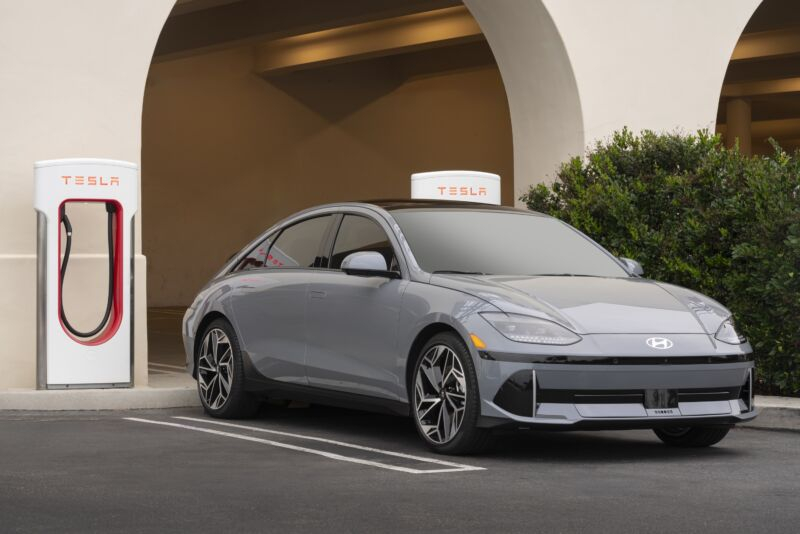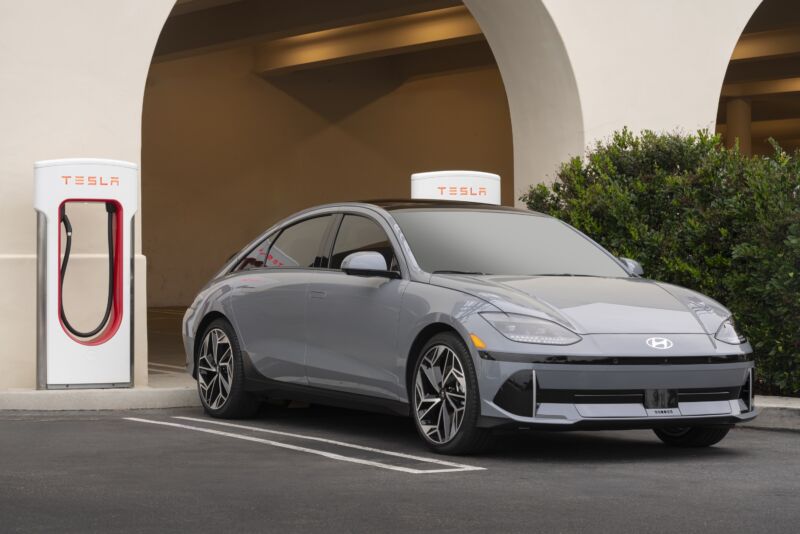On Thursday morning, Hyundai announced that it's the latest automaker to adopt
the North American Charging Standard for its battery electric vehicles. Developed by Tesla, NACS was opened up late last year and, since this May, has seen a flurry of automakers pledge to drop the existing Combined Charging Standard plug for the smaller, lighter NACS alternative, together with deals negotiating access to Tesla's robust Supercharger network in the process.
Ford went first, and all the subsequent announcements followed the same pattern: native NACS ports built into new EVs from 2025, with a CCS-NACS adapter made available in 2024 to allow those other brands' EVs to charge at Supercharger stations.
Today's timeline is slightly different, just to make sure we're paying attention. Hyundai says that it's going to start building NACS ports (instead of CCS1) into "all-new or refreshed Hyundai EVs" for the US market in Q4 2024, with Canadian EVs following suit in the first half of 2025.
Meanwhile, an adapter that will allow existing Hyundai EVs with CCS1 ports to charge at Superchargers or other NACS fast chargers will be made available in the first quarter of 2025, Hyundai says.
"Our collaboration with Tesla marks another milestone in our commitment to delivering exceptional EV experiences to our customers," said José Muñoz, president and global COO, Hyundai Motor Company and president and CEO, Hyundai Motor North America. "This new alliance will provide Hyundai EV owners confidence in their ability to conveniently charge their vehicles and complements our joint venture company to create a new, high-powered charging network with at least 30,000 stations across North America."
There had been some speculation that Hyundai had been holding off joining NACS and negotiating access to the Supercharger network as its latest generation of EVs operate at 800 V—Tesla's current third-generation Superchargers operate at 400 V, although the fourth-gen equipment is believed to be rated at 1,000 V.
But while Hyundai's E-GMP batteries are rated at 800 V, the platform was designed to be able to use 400 V chargers as well by using the motor and inverter to convert the 400 V feed into 800 V for the battery.





